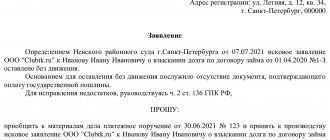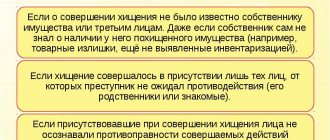ST 178 of the Criminal Code of the Russian Federation.
1. Restriction of competition by concluding a competition-restricting agreement (cartel) between competing economic entities, prohibited in accordance with the antimonopoly legislation of the Russian Federation, if this act caused large damage to citizens, organizations or the state or resulted in the extraction of income on a large scale -
shall be punishable by a fine in the amount of three hundred thousand to five hundred thousand rubles, or in the amount of the wages or other income of the convicted person for a period of one to two years, or by forced labor for a term of up to three years with deprivation of the right to hold certain positions or engage in certain activities for a term of up to one year or without it, or imprisonment for a term of up to three years with deprivation of the right to hold certain positions or engage in certain activities for up to one year or without it.
2. The same acts:
a) committed by a person using his official position;
b) involving the destruction or damage of someone else’s property or the threat of its destruction or damage, in the absence of signs of extortion;
c) causing especially large damage or resulting in the extraction of income on an especially large scale, -
shall be punishable by forced labor for a term of up to five years with deprivation of the right to hold certain positions or engage in certain activities for a term of up to three years or without it, or by imprisonment for a term of up to six years with a fine in the amount of up to one million rubles or in the amount of wages or other income convicted for a period of up to five years or without it and with or without deprivation of the right to hold certain positions or engage in certain activities for a period of one to three years.
3. Acts provided for in parts one or two of this article, committed with the use of violence or with the threat of its use, -
shall be punishable by forced labor for a term of up to five years with deprivation of the right to hold certain positions or engage in certain activities for a term of one to three years, or imprisonment for a term of up to seven years with deprivation of the right to hold certain positions or engage in certain activities for a period of one to three years. three years.
Notes.
1. In this article, income on a large scale is recognized as income the amount of which exceeds fifty million rubles, and income on an especially large scale - two hundred and fifty million rubles.
2. In this article, major damage is recognized as damage the amount of which exceeds ten million rubles, and especially large damage - thirty million rubles.
3. A person who has committed a crime under this article is exempt from criminal liability if he was the first among the accomplices to the crime to voluntarily report this crime, actively contributed to its disclosure and (or) investigation, compensated for the damage caused by this crime or otherwise made amends for the damage caused. and if his actions do not contain another crime.
What is a cartel agreement
A cartel agreement is concluded between several players in the same market, that is, organizations that produce the same or similar goods, works or services and, normally, must compete with each other. Competition aims to:
- improving the quality of supplied goods, works or services, since each organization, in conditions of fair competition, strives to improve the product and make it more salable;
- price reduction through modernization of production methods or reduction in supplier margins.
In a cartel agreement, companies agree on stable prices, divide sales markets among themselves, as a result of which the consumer receives goods, works and services of dubious quality at inflated prices. The practice of cartel agreements not only stagnates the market, but also impedes innovation, improvement of production methods and improvement of the quality of goods, works or services.
IMPORTANT!
Cartel agreements are illegal and unacceptable.
Judicial practice: sentences and punishment under Art. 178 of the Criminal Code of the Russian Federation
- Resolution of the Plenum of the Supreme Court of the Russian Federation dated... PLENARY OF THE SUPREME COURT OF THE RUSSIAN FEDERATION DECISION dated December 27, 2002 N 29 ON JUDICIAL PRACTICE IN CASES OF THEFT,...
- Decision of the Supreme Court: Resolution No. 310P13 dated... DECISION OF THE PRESIDIUM OF THE SUPREME COURT OF THE RUSSIAN FEDERATION Case No. 310-P13 Moscow January 23, 2014 Presidium of the Supreme Court of the Russian Federation...
- Decision of the Supreme Court: Determination N 203-APU17-21... THE SUPREME COURT OF THE RUSSIAN FEDERATION Case No. 203-APU17-21 APPEAL DECISION Moscow August 31, 2022 Judicial Collegium for Military Personnel of the Supreme...
- Resolution of the Plenum of the Supreme Court of the Russian Federation dated... PLENARY OF THE SUPREME COURT OF THE RUSSIAN FEDERATION DECISION of November 15, 2016 N 48 ON THE PRACTICE OF APPLICATION BY COURTS OF LEGISLATION GOVERNING FEATURES...
- Resolution of the Presidium of the Supreme Court of the Russian Federation dated... PRESIDIUM OF THE SUPREME COURT OF THE RUSSIAN FEDERATION DECISION dated December 5, 2018 N 126-P18 ON RESUMING PROCEEDINGS IN THE CASE DUE TO NEW...
- Judicial Collegium for Criminal Cases, appeal:... THE SUPREME COURT OF THE RUSSIAN FEDERATION Case No. 72-APU 17-21 APPEAL DECISION Moscow October 04, 2022 Judicial Collegium for Criminal Cases...
- Resolution of the Plenum of the Supreme Court of the Russian Federation dated... PLENAUM OF THE SUPREME COURT OF THE RUSSIAN FEDERATION DECISION dated June 25, 2022 N 18 ON JUDICIAL PRACTICE IN CASES OF CRIMES,...
- Ruling of the ECtHR dated 02/14/2017 EUROPEAN COURT OF HUMAN RIGHTS THIRD SECTION CASE “MASLOVA VS. RUSSIAN FEDERATION” (Complaint No. 15980/12) JUDGMENT…
- Resolution of the Plenum of the Supreme Court of the Russian Federation dated... PLENAUM OF THE SUPREME COURT OF THE RUSSIAN FEDERATION DECISION dated December 17, 2022 N 43 ON SOME ISSUES OF JUDICIAL PRACTICE IN CASES...
- Decision of the Supreme Court: Determination No. 56-КГ16-46 dated... THE SUPREME COURT OF THE RUSSIAN FEDERATION No. 56-КГ16-46 DETERMINATION Moscow March 6, 2017 Judicial Collegium for Civil Cases of the Supreme Court...
What is a cartel agreement in government procurement?
The public procurement system has been introduced to ensure the most rational use of budget funds. For 44-FZ, competition is a fundamentally important condition.
In Part 1 of Art. 10 135-FZ states what a cartel agreement is under 44 Federal Laws - agreements between business entities-competitors, that is, between business entities that sell goods on the same market, or between business entities that purchase goods on the same product market, if such agreements lead to:
- Establishing or maintaining prices (tariffs), discounts, surcharges (surcharges) or markups.
- Increasing, decreasing or maintaining prices at auctions.
- Division of the commodity market according to the territorial principle, the volume of sale or purchase of goods, the range of goods sold, or the composition of sellers or buyers (customers).
- Reducing or stopping the production of goods.
- Refusal to enter into contracts with certain sellers or buyers (customers).
During the existence of the contract system, more than one form of cartel agreement has been invented, including:
- the well-known “battering ram”, in which two players negotiate: one, during the bidding process, greatly reduces the price of the contract, making it unprofitable for other bona fide suppliers, which is why they are removed from the bidding. At the end of the auction, another participant in the conspiracy submits an application, lowering the price slightly; as a result, the second parts of the applications of these two participants are considered by the customer. During the review, it turns out that the application of the supplier, who greatly reduced the cost, does not meet the requirements. As a result, the one that has decreased slightly wins. The agreement between the “ram” and the winner is that the second pays the first a “kickback”, or at the next auction the winner will become a “ram” and ensure victory for the partner;
- organizations agree among themselves not to significantly reduce the contract price, which is unprofitable for the customer;
- as a result of the agreement, one of the competitors does not submit his application or submits it with deliberate errors, ensuring victory for the other participant.
Cartel agreement between the customer and the contractor is possible in the following forms:
- the customer develops documentation “tailored” for a specific participant. There are often cases when, even before the start of the procedure, participants develop documentation on their own and transfer it to customers, who only publish it in the required form;
- the customer formulates the documentation and requirements for participants so that an unprepared supplier cannot independently submit documents for participation correctly, thereby preparing the ground for the desired company;
- During the tender, the customer unreasonably or on far-fetched grounds weeds out unwanted participants, lobbying the interests of a particular company.
Signs of a cartel conspiracy
An anti-competitive agreement is recognized at the stage of publication of documentation, before direct bidding, by certain indirect signs. Signs of cartel agreement in public procurement:
- ornate procurement documentation with many small requirements for applications;
- the presence of requirements that are not strictly necessary, given the subject of the purchase, but which only one company is capable of fulfilling, is a sure sign that the customer is trying to ensure its victory;
- incredibly short deadlines for execution: if the customer provides too little time for the execution of the contract, this means that part of it has already been completed by a certain company and its victory is necessary for the customer;
- NMCC is too small - perhaps the customer expects that conscientious participants simply will not be interested in an unprofitable offer.
Already during the bidding, it is possible to determine a cartel conspiracy if there are signs of a cartel at the bidding:
- composition of participants: if the same companies wander together from one procurement to another, this often indicates an established pattern of collusion;
- a strong decrease in price at the beginning of trading is a sign of a “ram”;
- one or more players make strange, unfavorable steps for themselves, for example, significantly reduce the price or, conversely, do not participate in the auction.
It is quite difficult to establish clearly obvious signs of a cartel from the outside. When considering such cases, the FAS considers not only the plot of a particular tender, but also the previous participation of a group of organizations in other tenders, the IP addresses from which each organization operates, and other signs. The presence of collusion is suggested by the feeling that during the bidding:
- players know each other's steps;
- players or the customer “promote” one organization to victory;
- bona fide players are screened out unreasonably.
Fines for cartel procurement agreements
Organizing and participating in an anti-competitive agreement is punishable for both customers and participants, and is qualified as:
- administrative offense under Art. 14.32 Code of Administrative Offenses of the Russian Federation. Committing it threatens with a fine for officials from 20,000 to 50,000 rubles or disqualification for up to 3 years, for legal entities - from 1/10 to ½ of the NMCC, but not less than 100,000 rubles;
- criminal offense under Art. 178 of the Criminal Code of the Russian Federation, if the actions of the culprit led to large or especially large damage. The sanction for a cartel conspiracy will be forced labor for up to 5 years with or without deprivation of the right to hold certain positions for up to 3 years, or imprisonment for up to 6 years with a fine of up to 1,000,000 rubles or without it and with deprivation of the right to hold certain positions for a period from 1 year to 3 years or without it. Criminal prosecution is carried out taking into account the provisions of the Criminal Code of the Russian Federation on the statute of limitations. If damage is caused on a large scale, the statute of limitations for a cartel agreement will be two years from the date of the crime, if in a particularly large amount - six years.
Commentary to Art. 178 Criminal Code
1. The objective side is characterized by the following mandatory features: the act is a restriction of competition; way - by concluding between business entities - competitors an agreement restricting competition (cartel), prohibited in accordance with antimonopoly legislation; consequence - major damage (over 10 million rubles) to citizens, organizations or the state or extraction of income on a large scale (over 50 million rubles).
2. On the concept of a cartel, see Art. 11 of the Federal Law of July 26, 2006 N 135-FZ “On the Protection of Competition”.
3. The actions of an official who uses his official powers to prevent, restrict or eliminate competition in the ways listed in the law are qualified under Part 2 and additional qualifications under Art. 169, 285 or 286 of the Criminal Code are not required.
4. Part 3 covers beating the victim, committing other violent acts that caused physical pain, causing minor or moderate harm to health.
5. Unlike extortion, the crime in question is not associated with a requirement for the gratuitous transfer of property or the right to property or the commission of actions of a property nature, the result of which will be a violation of property relations. The intent of the perpetrator in this case is aimed at limiting, preventing or eliminating competition.
What to do if you encounter a cartel agreement under 44-FZ
Initially, the case of cartel conspiracy is considered by the FAS; later it goes to the arbitration court if one of its participants decides to challenge the FAS decision. Or the complaint is initially filed with the court if the deadline for appealing to the FAS is missed. Judicial practice on cartel agreements under 44 Federal Laws is varied, in particular:
- procurement participants challenge the actions of customers aimed at lobbying the interests of a separate organization;
- The behavior of players before and during trading is examined to establish a connection between them. The focus of the pack is, for example, “repeat players”—companies that act as a united front year after year and consistently win with the same customers or in the same market areas.
For example, by the Resolution of the Administrative District of the East Siberian District dated July 4, 2019 in case No. A10-3052/2018, the auction was declared invalid due to the fact that the “ram” scheme was used.
The auction participant went to court, believing that other participants had colluded at the auction. The court found that the two participants created the appearance of a fight by reducing the price by more than 90%. They deliberately submitted applications in violation, and the customer rejected them. The contract was concluded with the third accomplice of the scheme at the highest possible price. Conscientious participants, confused by the sharp drop in price, were unable to participate in the auction. As a result, the court declared the auction invalid.
When determining the guilt of individuals, courts take into account both direct and indirect evidence. For example, proof of guilt would be:
- use of the same IP addresses by several players;
- facts of monetary transactions between participants;
- discovery of documents of one participant in the office of another.
Cartels limit the development of the market both economically and in terms of the introduction of innovative production methods. It makes no sense for companies to invest in innovation if they already have a confidently high value on the market.
How to complain to the FAS
The first government body that will consider a cartel case is the Federal Antimonopoly Service; the fight against cartels is its area of direct competence.
You can report a discovered cartel to the FAS:
- using an official written application sent by mail or brought in person to the reception of a government agency. There are no special requirements for such an appeal, it is drawn up in free form, it is important to indicate in it the addressee, the applicant, detail the facts and suspicions and support them with documents, if any;
- use the feedback form on the department’s website; such requests are considered official.
An example of a complaint to the FAS about a cartel conspiracy:
If the deadline for applying to the FAS is missed, or if the FAS decision does not suit one of the participants in the case, the issue is referred to the arbitration court - the judicial practice on cartel conspiracy under 44-FZ is large and varied. Courts decide the existence or absence of a cartel agreement between companies based on a number of direct or indirect signs:
- IP addresses from which companies submit applications are analyzed; if the addresses match, this is one of the arguments in favor of the presence of a cartel;
- history of relationships: if companies often participate in the same purchases and behave in a similar way, this is alarming;
- Monetary transactions between suspected companies or the discovery of documents from one of them in the office of another are also alarming.
For example, when making a decision in case No. A10-3052/2018, the court saw signs of a “ramming” scheme in the actions of the defendants. The court concluded that three procurement participants entered into a cartel agreement: two of them pretended to fight and reduced the contract price by 90%, but their bids contained errors, which is why the contract was not concluded with them. The winner was the third participant, who received the contract with a minimal reduction in the NMCC.
Another significant decision was made by the Arbitration Court of the Sverdlovsk Region in case No. A60-47465/2018. The process examined the history of 17 auctions in which companies suspected of collusion took part. Based on the results of the analysis of all procedures, the court came to the conclusion that in each of them the defendants acted together and in each other’s interests. Moreover, it was established that the participants acted from the same IP address and by the same employee. This behavior is recognized as a cartel agreement.










